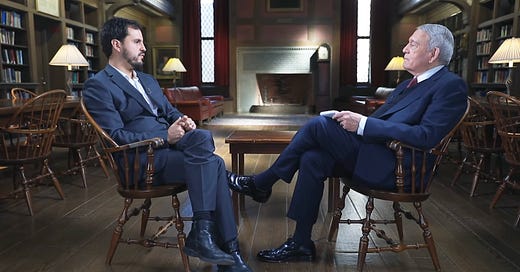Our world is threatened, and science can offer hope. From vaccines for COVID to clean energy to combat the climate crisis, we can embrace a future that lessens human suffering and protects our planet. But sadly the rational pursuit of data and knowledge is under assault, a victim of conspiracy theories and misinformation propelled by social media and cynical people who seek power by spreading lies. It is vital that we all do a better job of communicating what science is and what it can mean. We also must encourage greater diversity and inclusion in the ranks of science researchers.
Too many people see science as a world apart and out of reach — a complicated mix of numbers, figures, and hard-to-decipher jargon that frustrated them in school. But science can and should be exciting, the desire to traverse the horizons of knowledge. At our core we are actually all scientists of a sort trying to understand the world in which we live. This was something I discussed a few years back with Dr. Daniel Colón-Ramos, a Yale professor of neuroscience and cell biology as part of a series of interviews called “Conversations in Science” (To see the other installments as well as more short films about science please click here).
Our discussion was far-reaching and I thought you would find it of interest as we as a society and a global community wrestle with the future of science. So I share it today as an installment of our Weekend Watch. As always I appreciate your feedback.
I hope to continue to build a community here on Steady. If you aren’t already a subscriber, please consider signing up to a free or paid subscription. You can also leave a one-time tip to support our work. And if you are already part of our family, please consider sharing this post — and Steady — with others.




I really enjoyed listening to this interview, Dan. You are such a pro. Loved how you started the conversation with asking the Dr. to talk about his own story. That was so special. I loved how Dr. Daniel Colon-Ramos looked back to his childhood to lay the groundwork for his own curiosity. I taught kindergarten for years and this is what I would experience and see in my students. The curiosity and excitement is so amazing to watch when children discover something new or create something unique. It is the beginnings of a "journey of learning" that inspired me to teach. Thank you for sharing Steady team and thank you Dan for sharing your experiences.
And as we must have an impenetrable wall between religion and government, so must we have an impenetrable wall between politics and science.
Neither will happen in today’s toxic environment, but both are great ideas.